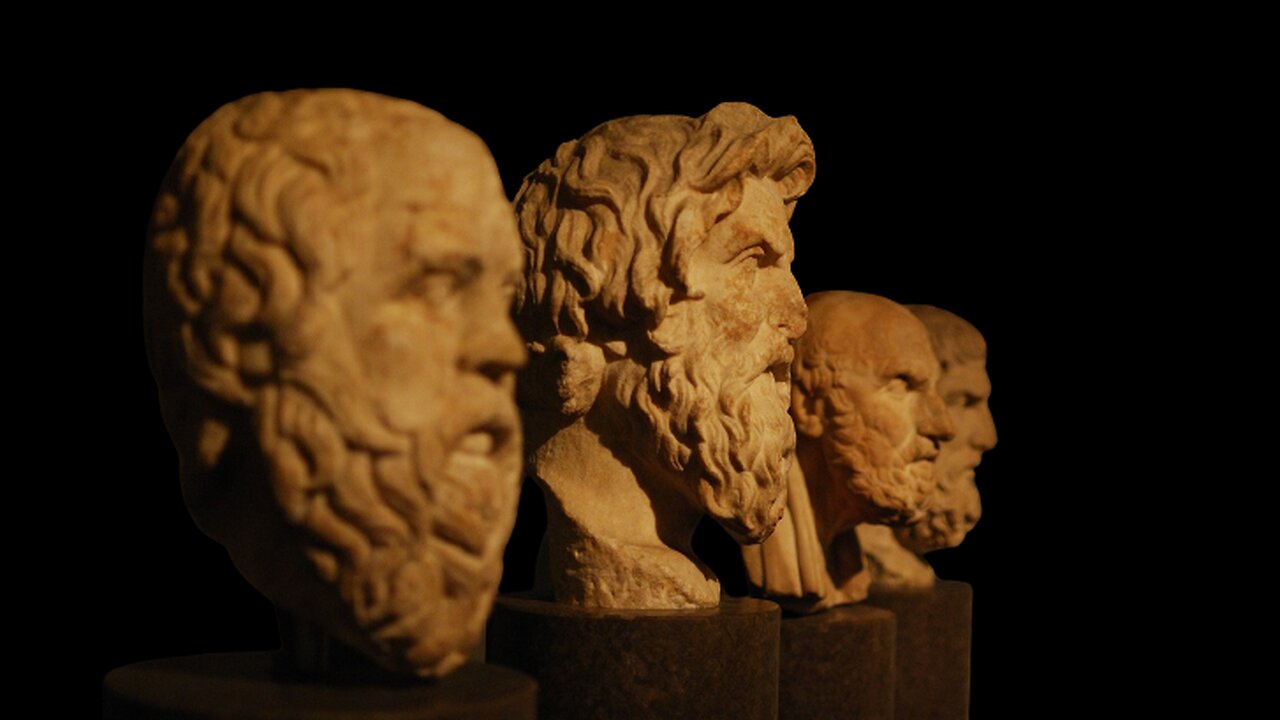Premium Only Content

20 Aristotle's (Philosophers) thoughts on various aspects of life
Aristotle (384–322 BC) was one of the most influential philosophers and scholars in the history of the Western world. Born in Stagira, Greece, he was a student of Plato and later became the tutor of Alexander the Great.
Aristotle's Works:
Natural Sciences: Aristotle made significant contributions to biology, physics, and astronomy. He described various species of animals and studied their anatomy, behavior, and reproduction. His works in natural sciences included observations and classifications that paved the way for future scientific inquiries.
Metaphysics: Aristotle’s metaphysical thought included a detailed examination of the nature of reality. He distinguished between form and matter and introduced the concept of "substance," referring to individual existing things.
Ethics: Aristotle's ethical philosophy is well articulated in his works such as the "Nicomachean Ethics." He introduced the concept of eudaimonia, often translated as "happiness" or "flourishing." Aristotle believed that happiness is achieved by living a life of virtue, which is a mean between deficiency and excess.
Politics: Aristotle also wrote extensively on the topics of governance and statesmanship. He believed in a constitutional government and analyzed different types of governments, exploring their strengths and weaknesses.
Logic: He is credited with developing the field of logic as a formal discipline. His syllogistic logic laid the groundwork for deductive reasoning, which remains integral to the philosophical and scientific inquiry today.
Poetics: Aristotle studied and wrote about the art of poetry and drama. He analyzed tragic and epic forms of poetry and introduced concepts like the tragic flaw, catharsis, and mimesis, which are still discussed in the studies of literature and drama.
Aristotle's Views on Life:
Purpose and Potential: Aristotle believed that everything in nature has a purpose (or "telos"). He thought that realizing one’s potential and fulfilling one’s purpose is key to living a good life.
Virtue Ethics: He proposed that moral virtue is a state of character concerned with choice. It involves maintaining a balanced life, avoiding extremes, and choosing the mean between excess and deficiency (the Golden Mean).
Rationality: Aristotle considered rationality as the defining characteristic of humans. He thought that exercising rationality and intellect is essential for achieving virtue and happiness.
Social Beings: He also viewed humans as social beings, emphasizing the importance of the community and social relationships in achieving a fulfilling life.
Aristotle's extensive writings and observations have continued to shape philosophy, natural science, theology, and many other fields for centuries, showcasing the enduring significance of his insights and perspectives.
-
 1:30:17
1:30:17
Graham Allen
2 hours agoLibs FREAK OUT over Whitehouse Construction!! + National Guard are TAKING OVER Portland
25.5K40 -
 LIVE
LIVE
Badlands Media
8 hours agoBadlands Daily: October 21, 2025
3,085 watching -
 LIVE
LIVE
Matt Kohrs
10 hours agoNEW HIGHS INCOMING?! || Live Trading Futures & Options
588 watching -
 LIVE
LIVE
Side Scrollers Podcast
1 day ago🔴SIDE SCROLLERS FUND-A-THON🔴DAY 1🔴100% REVENUE HELPS CHANGE CULTURE!
1,160 watching -
 LIVE
LIVE
Wendy Bell Radio
5 hours agoWhat A Fool Believes
7,633 watching -
 16:33
16:33
World2Briggs
21 hours ago10 U.S. Towns Where Retirees Are the Only Growth Industry.
120 -
 LIVE
LIVE
The Mike Schwartz Show
9 hours agoTHE MIKE SCHWARTZ SHOW with DR. MICHAEL J SCHWARTZ 10-21-2025
3,659 watching -
 1:07:58
1:07:58
Chad Prather
5 hours agoTHIS Is What America's Christian Faith Is MISSING
42.6K21 -
 LIVE
LIVE
LFA TV
11 hours agoLIVE & BREAKING NEWS! | TUESDAY 10/21/25
3,106 watching -
 35:41
35:41
Tucker Carlson
20 hours agoThe 9/11 Files: From Tragedy to Tyranny | Ep 5
66.5K38